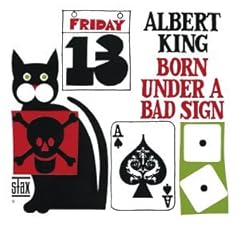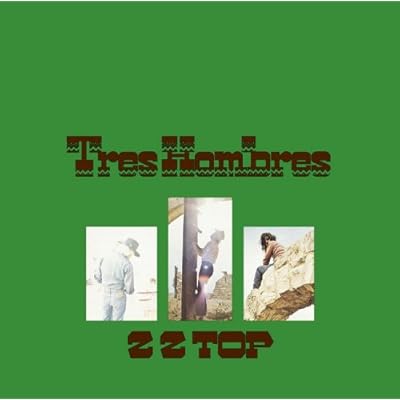- The Head and The Heart (indie folk)
- Sarah McLachlan (folk/rock)
- Joe Pug (folk)
- Bela Fleck and the Flecktones (jazz)
- The Decemberists (indie folk/rock)
- Darrell Scott (country-folk)
- Abigail Washburn (folk?)
- Mumford & Sons (folk rock)
- Robert Plant (folk rock)
Wednesday
I drove up early Wednesday, played a round of golf, and got settled into my condo, after which I turned my attention to the festival.
The festival officially started with a free show in Mountain Village on Wednesday, opened by Sarah Jarosz, and Cornmeal following. I didn't watch Sarah (I have respect for her talent, especially at such a young age, but don't care for her music), but Cornmeal didn't disappoint. After Cornmeal was the 10th annual kickoff party with Yonder Mountain String Band, which I attended. In typical Yonder fashion, it featured a few bluegrass songs, a few of their bluegrassy-but-not-bluegrass tunes, some very extended jams (which is why we watch this band)... and an audience hot boxing an indoor conference center where I highly doubt smoking of any kind is allowed.
Thursday
Thursday started off slow. Tim O'Brien and Kevin Burke opened. I listened, but one can only take so much of two fiddles playing Irish music. The Head and The Heart followed... I like their record, but their show was basically just hearing their record played on stage. I know they're young, so they have time to work on building more of a stage presence.
Cornmeal, again, did not disappoint. This band is somewhat mysterious; it's hard to even find someone who could name a single Cornmeal studio album. There has to be one, right?
I skipped Michael Cleveland and Flamekeeper to take a short hike up Bear Creek behind the stage. Very scenic, though a little exhausting at that elevation.
 |
| Bear Creek Falls |
The highlight of the day turned out to be the following event: the Trampled by Turtles nightgrass show at the high school auditorium (aka "Palm Theater"). I knew this band would be intense, but I still left amazed at the raw energy this band has (interestingly, the program blurb about TbT alleges that they used to play all their shows sitting down).
Friday
I was expecting Friday to be superb. The lineup was solid on paper, and there was at least one new band I was interested in checking out (Stringdusters). It started with Joe Pug, who is very talented to be sure, but gets a little dull after a few songs. Chris Thile and Michael Daves then took the stage, and amazed everybody with their technical chops. I have no clue who Michael Daves is, but that man is an amazing guitar player.
By the time The Infamous Stringdusters took the stage, it had begun drizzling. Their music was OK (the only things I remember are the only songs I recognized: Danny Barnes' "Get It While You Can" and U2's "In God's Country." Because of the rain, I ditched out to have lunch with the gang.
We all returned to watch Jerry Douglas' trio perform, which was pretty good. I left early to hit up Elks Park, where the Punch Brothers were supposed to perform. Unfortunately, the Troubadour contest ran late, so I was only able to hear two Punch Brothers songs before I had to make my way back for Trampled.
And again, Trampled by Turtles won the day:
Emmylou Harris followed, and then Bela Fleck and the Flecktones. A few of us left Flecktones early to return the condo. I took care of some business, and then returned for Railroad Earth. Unfortunately, my back wasn't feeling it, so I left Railroad Earth halfway through.
Saturday
On Saturday morning, there was the second ever public screening of a new documentary about Punch Brothers entitled "How To Grow A Band." Since it was free, and because I love Punch Brothers, I decided to attend (even though it meant missing out on Nora Jane Struthers or Sara Watkins with Chris Thile (who schedules a movie that is basically about Chris Thile at the same time as a Watkins/Thile performance? seriously?)). I watched the movie with my buddies Myke and Futureman (just kidding, I didn't watch the movie with Futureman, although he was in the 186-seat theater). The movie began with Thile's history (notably with Nickel Creek), and then focused on the creation and evolution of his current band, Punch Brothers. It used his 40-minute, four movement suite about his divorce as the backdrop; the movie itself was divided up into four "movements," each of which features music from the corresponding movement of the song; and significant attention is given to how the piece is presented, and how that all fits into what the band is trying to accomplish.
After the movie, I visited Elks Park (it being a block away from the theater), and noticed that "Bela & Friends" were next. In what is very likely the most unfortunate decision in his life so far, Myke decided to head back to the main stage, whereas I decided to check out the set. The set went like this: a banjo duet with Noam Pickelny (of Punch Brothers fame); a duet with Casey Driesson (fiddlist); a banjo duet with his wife Abigail Washburn; an improvised quintet with Victor Wooten, Futureman, Chris Thile, and Driesson (more on this); a bluegrassy sextet with the former group plus Pickelny; a sextet with the former group, sans Pickelny and with Washburn; and a song with everybody. The highlight was the quintet, which was basically an improvised jazz number (Bela gave the other musicians directions before the song), which had an incredible duel between Victor and Bela. I really hope this shows up on Youtube.
I then headed back to the main stage, and caught Tim O'Brien's set. After that, Yonder put on a very solid show.
And then...The Decemberists. This show had what was easily the most memorable moment of the festival. Throughout the show, Colin Meloy frequently referenced a pick-off challenge he made in 2005 to Bela Fleck and Jerry Douglass, and claimed victory by forfeit. During the last song of the main set, The Decemberists went into a jam, and Meloy once again referenced the pick-off. Bela appeared on stage, and...well, I'll let you watch the rest:
Afterwards, Sam Bush took the stage, and was excellent as usual.
Needless to say, The Decemberists win the day.
Sunday
Sunday began with the Darrell Scott & Friends Father's Day Gospel Hour. I like Darrell Scott, and this set was actually quite inspirational. I think I was actually more inspired by it than I would have been at church. Edgar Meyer followed...he was very respectable, but it was a little bit like listening to classical music. Which isn't a good idea when you tired. Chris Thile did join him at the end, which was quite enjoyable.
Next up was Abigail Washburn. I have to say, I was very impressed with her set. She gets the "Surprise Performance of the Weekend" award.
It had been a few years since I had seen Bridal Veil Falls, so I took a short jaunt up the road after Abigail's set. I returned about halfway through Pete Rowan's set, which was hard to focus on due to the very ominous-looking clouds to the west. And ominous was probably an appropriate way for them to come across, as they started leaking on us a little before Punch Brothers took the stage.
I like to think there are few things better than when one of your favorite artists covers another one of your favorite artists. That's what Punch Brothers did when they played Josh Ritter's "Another New World." Also, they did Beck's "Sexx Laws," which was also cool, in its own little way. They say Punch Brothers are unpredictable...
Mumford & Sons followed Punch Brothers. They put on a good show, and played several new tunes, but alas, I still left a little underwhelmed... but that's only because it's really hard to top what they did last year. After M&S, the rain finally stopped, and a clearing sky and setting sun revealed fresh snow only about 1,000 feet above Telluride. I have to say, the only reason I was able to endure that freezing cold rain, and even effectively ignore it, was because Punch Brothers and Mumford & Sons were the two bands playing right then.
The rest of the gang left after M&S, leaving me to enjoy Robert Plant by myself. And that I did. He played several of the tracks from his album Band of Joy, gave the spotlight to band members Darrell Scott, Patty Griffin, and Buddy Miller to sing a song each (Darrell did "Satisfied Mind," one of the highlights of the set), and played several Led Zeppelin songs (Ramble On, What Is And What Should Never Be, Gallows Pole, Black Dog, Misty Mountain Hop, Black Country Woman (whose lyrics he admitted are "not exactly Shakespeare"), Houses of the Holy). I left around eleven, so he could've even done more after I left (as long as he didn't do Stairway, I'm OK missing it).
Robert Plant wins Sunday.
Monday
Woke up Monday to... snow? Yes, it was white all over, and snow was still falling from the sky. Unbelievable. After loading up my car, I headed down to Telluride for one last walk through town (and two last Baked In Telluride doughnuts). The streets were dead, and most of the people out and about appeared to be locals. This scene captured the "festival is over" feeling of the morning:
 |
| Disassembling the Elks Park stage |
T minus 366 days till Telluride 2012!
Addendum:
I had a couple of philosophical thoughts about the festival since posting this:
- If you want to know how steeped in tradition this crowd is... Or, in other words, whether this is really a "bluegrass" crowd... Consider that a lot of people in the crowd knew the lyrics to "Sexx Laws."
- I think the thing that sets TBF apart from other popular festivals, in my mind, is the location. I love the San Juan Mountains. I don't love Indio, CA. TBF is in a village of a couple thousand people, which gets completely overwhelmed by the 10,000+ people who are there for the festival. You can walk across town in 15 minutes. You can leave your festival chair, go on a scenic four hour hike, and sit down again, without having to get in your car and drive somewhere. It's not about the music; it's about how the music interacts with the surrounding environs.


